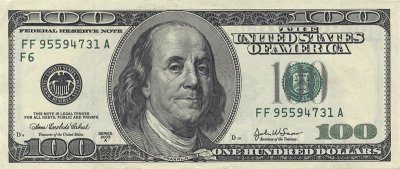Wavepacket Blog displaying only one specific post |
| 2008 | |
| September | |
| Mon Sep 29 21:17:40 2008 Just say No |
|
| >> links >> | |
| Mon Sep 29 21:17:40 2008 Just say No Congress shuts down the bailout. |
|
| Well, Congress
said no today. I'd like to think it was my aggressive blogging that helped stop the
bill's passage.
On the one hand, I think we can breathe a sigh of relief. This was a bill desperately wanted by financial institutions so they could cap their losses and dodge responsibility for their poor risk management. I still believe that the clamor of Wall Street was ringing more in the ears of Bernanke and Paulson than Main Street. This means that, if needed, that $700B can be used to help stave off a recession in other, more practical ways. On the other hand, now what? The markets didn't like the news, of course. The Dow Jones Industrial Index dropped 777 points, which, as every reporter noted, was "the largest single-day point loss in history." Interestingly, that means it wasn't the largest percentage drop. The 777 drop was 6.8%, which wasn't really close to the Black Monday (1987) drop of over 22%. Weird that they didn't mention that today's drop was less than a third as bad as Black Monday! But of course that doesn't sell newspapers. And the economic news wasn't all bad. Oil posted a large price drop, now down to a price of around $95 per barrel. Commodities holders are worried that lower demand will keep prices down. Of course, consumers of commodities are in better shape! Not that I'm getting cocky. The economy is still in for a rough ride, and there could be further negative impacts ahead. Well, what will happen now? I'm guessing that not much will happen legislatively until after Election Day. Members of Congress will be far too worried about their jobs to take a chance on a very expensive bill. The political maneuvering was excellent. President Bush proposed it, argued for it, and lost. So now he can claim a recession isn't his fault. Senators McCain and Obama did the same thing. However, we are still left holding the bag, and the government will have to step in to help keep things from collapsing. Here are my predictions:
A 6 month recession isn't bad! I am gambling that the subprime mortgage crisis has not infected the majority of commercial banks, so the banking system as a whole will keep going. And I'm guessing that the consumer slowdown, which has already started, will continue for just a bit more. But the bottom will be reached as those firms who still have assets are able to capitalize on the situation, and risk-takers will take advantage of cheaper credit and lower prices. Comments |
Related: economics predictions Unrelated: books energy environment geopolitics lists mathematics science |
| Links: |  |
Blog Directory | Blog Blog | Technorati Profile | Strange Attractor |
